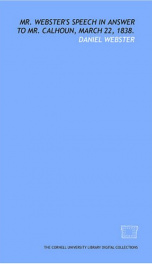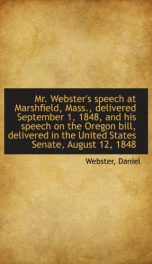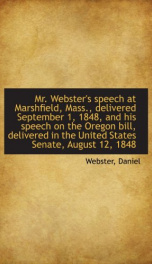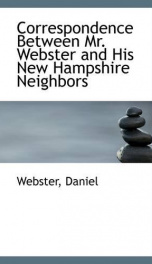an address delivered before the new york historical society
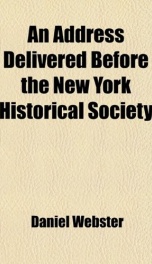
Purchase of this book includes free trial access to www.million-books.com where you can read more than a million books for free. This is an OCR edition with typos. Excerpt from book: It stands next to Epic poetry, among the productions of the human mind. If it requires less of invention than that, it is not behind it in dignity and importance. The province of the Epic is the poetical narrative of real or supposed events, and the representation of real, or at least natural, characters; and History, in its noblest examples, is an account of occurrences, in which great events are commemorated, and distinguished men appear as agents and actors. Epic poetry and the Drama are but narratives, the former partly, and the latter wholly, in the form of dialogue ; but their characters and personages are usually, in part at least, the creations of the imagination. Severe history sometimes assumes the dialogue, or dramatic form, and, without departing from truth, is embellished by supposed colloquies or speeches, as in the productions of that great master, Titus Livius, or that greater master still, Thucydides. The drawing of characters, consistent with general truth and fidelity, is no violation of historical accuracy ; it is only an illustration or an ornament. When Livy ascribes an appropriate speech to one of his historical personages, it is only as if he had portrayed the same character in language professedly his own. Lord Clarendon's presentation, in his own words, of the character of Lord Falkland, one of the highest and most successful efforts of personal description, is hardly different from what it would have been, if he had put into the mouth of Lord Falkland, a speech exhibiting the same qualities of the mind and the heart, the same opinions, and the same attachments. Homer describes the actions of personages, which, if not real, are so imagined as to be conformable to the general chapter{Section 4characteristics of men in the heroic ages. If his re...
Info about the book
Author:
Series:
Unknown
ASIN:
B003YMN3SM
Rating:
3/5 (3)Your rating:
0/5
Languge:
English
Users who have this book
Users who want this book
What readers are saying
What do you think? Write your own comment on this book!
write a commentGenre
if you like an address delivered before the new york historical society try:
Other books by this author
Do you want to exchange books? It’s EASY!
Get registered and find other users who want to give their favourite books to good hands!

